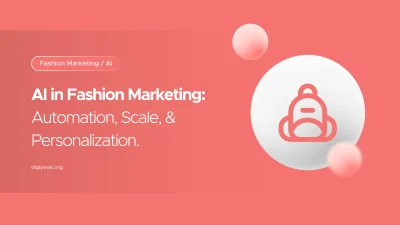
AI in Fashion Marketing: Automation, Personalization, Scale
In an industry that moves at the speed of culture, staying still means falling behind. …
Artificial Intelligence Creative Design -
13/04/2023 -
7 dk okuma
Stay up to date with Peakers
“Will robots take over our world?” has been a topic of debate for years. Technology has advanced a lot; robots have been replaced by artificial intelligence (AI) tools, and it is not our world that has been taken over but various digital services.
AI graphic design is an exciting field that leverages the power of artificial intelligence to create beautiful and compelling visuals. Design AI can simplify the graphic design process by automating tedious tasks and freeing up designers to focus on the more creative aspects of their work. With graphic design AI tools, designers can experiment with new techniques and styles, explore endless possibilities, and push the boundaries of what’s possible in visual communication.
The most important feature that distinguishes these tools from others is their ability to mimic human intelligence. AI tools can become smarter by improving themselves in the context of data. Today, the impact of artificial intelligence grows as AI tools can communicate with humans using textual interaction and image processing capabilities.

Wombo Dream was the creator of this image.
A small note: All the images we use in our article are artificial intelligence designs.
Artificial intelligence design applications are software applications that use various data techniques, such as machine learning, cognitive computing, and graphics processing algorithms, to help users at various stages of the design process.
Such tools transform data, such as prompts or sketches specified by the user, into visuals in various ways. Therefore, people with no design knowledge can also produce their own design work using tools such as Midjourney, Dall-E, Pixray, and Wombo Dream.
The main goal of artificial intelligence tools is to contribute to and facilitate the work of users. While some people are happy to have these software tools, which theoretically move them closer to their goal, others are not so happy. The main question is: “Can artificial intelligence ai take our jobs away?”. Let’s evaluate this issue through the design industry!
Saving time: AI tools can automate certain design tasks for designers. This can save designers time, allowing them to focus on the more complex and creative aspects of the design process.
Data analytics: AI tools can analyze data about industry preferences and behaviors to help designers make more informed design decisions. For example, AI can predict which design elements are likely to be most effective in a given market or for a given target audience.
Design creation: AI tools can help designers come up with new design ideas. For example, AI can suggest alternative design options based on a designer’s sample concept or generate designs based on specific keywords.
Control: AI tools can help designers ensure high quality design output. For example, AI can check designs for grammatical errors, ensure that designs are compatible with different devices, or check for accessibility issues.
Unauthentic content: AI tools can automate many design tasks, but they cannot produce original designs. If designers become too dependent on AI tools, they may start to lose touch with their creative instincts and thinking skills. This can lead to the homogenization of design styles and less innovative solutions in the design industry.
Dissonance: Over-reliance on AI tools can lead to a lack of communication and analysis skills in designers. This can negatively impact designers’ ability to adapt to changing design trends and client preferences.
Discrimination: AI tools have an algorithm based on existing data and patterns. For example, if AI is trained with data sets that appeal only to a certain segment, the design solutions it produces may not accurately represent users from different segments and cultures.
Security Risks: AI tools are susceptible to cyberattacks that can jeopardize the security of design data and intellectual property rights.
In conclusion, while AI tools have many positive impacts on the design world, there are also potential negative impacts to consider.
AI tools have the potential to automate many tasks currently performed by designers, such as creating design layouts, choosing color schemes, and designing various visual elements. However, it is unlikely that AI tools will completely take over designers’ jobs.
Design is a complex and creative process that requires an in-depth examination of aesthetics, user requirements, and industry goals. While AI tools can help designers with some tasks, they cannot replicate the intuition, ability of empathy, and problem-solving skills inherent to “human” designers. Design is not just about creating aesthetically successful visuals. It also involves strategic creative thinking and decision-making.
Rather than changing the design industry, AI tools are more likely to enhance designers’ abilities and help them work more efficiently. For example, AI can help designers quickly generate multiple design options, analyze user data at the point of decision, and automate repetitive tasks.
Artificial intelligence ai is rapidly evolving in the art world and changing the creative process. Artificial intelligence and art are at an intersection that pushes the limits of human creativity and offers a new perspective on the art world. Artificial intelligence design tools can be used in graphic design as well as in painting and photography. Artificial intelligence applications that make paintings offer us a new perspective.
AI makes art more accessible and opens up new possibilities for everyone. AI can also be used in the visual arts, such as image creation and photo editing. The use of AI in design tools will offer an easier and more accessible design process with AI for everyone.
AI is expanding the creative boundaries of designers and marking the beginning of a new era in the world of digital design. AI art refers to a space where technology meets creativity. AI painting offers a different approach from traditional painting techniques and expands the boundaries of artists.
AI photography automates the photo editing process, saving time and offering new aesthetic approaches. Through its use in design tools, AI is expanding the boundaries of human creativity and will be a key driver of future developments in design tools. The future of artificial intelligence promises a world full of new possibilities and unlimited potential.
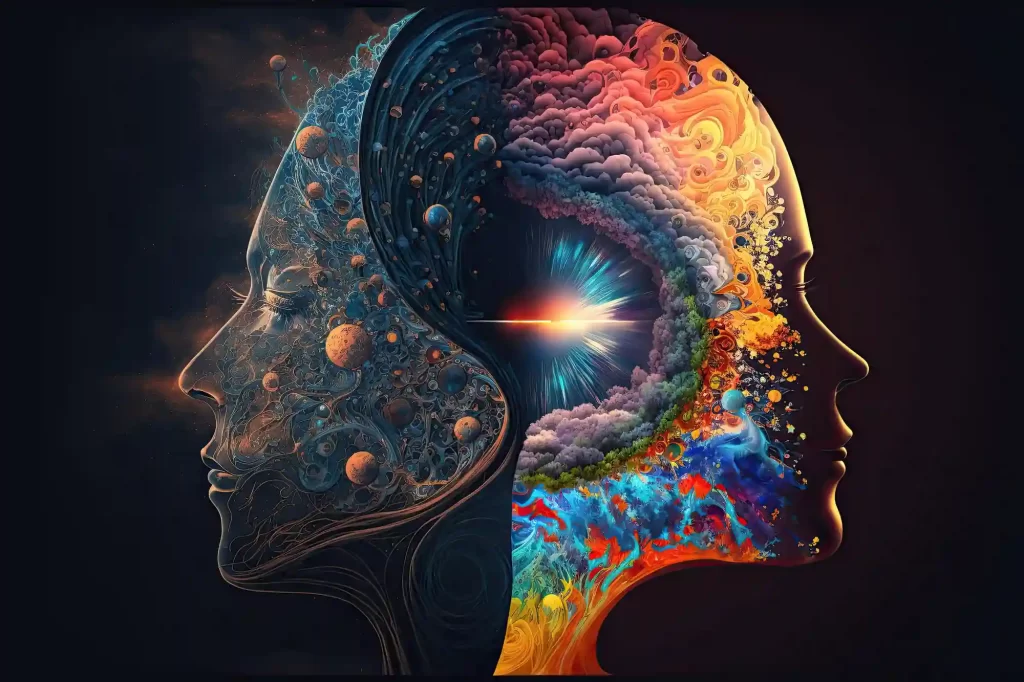
In summary, while AI tools have the potential to impact the world of design, it is unlikely that they will completely replace ‘human’ designers. Instead, it will become an important tool that designers can use to improve their skills and achieve better results in their work.
Digipeak is a digital marketing agency that offers a wide range of digital marketing services such as SEO, paid marketing, content marketing, social media management, and brand design. We keep up with the developing technologies of the age and integrate innovative technologies such as artificial intelligence ai and machine learning into our services.
As Digipeak’s dynamic team, we always follow the latest technologies to provide the best service to our customers. Thanks to artificial intelligence and machine learning technologies, we can offer our customers a more customized and effective marketing strategy. You can contact us to experience Digipeak’s innovative approach and benefit from our digital marketing services.
Get an Offer


Join Us So You Don't
Miss Out on Digital Marketing News!
Join the Digipeak Newsletter.
Related Posts

In an industry that moves at the speed of culture, staying still means falling behind. …
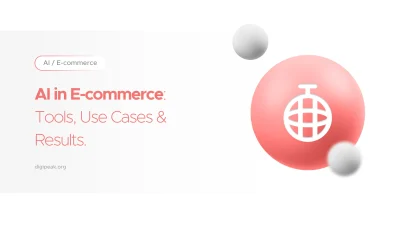
Do you recall when "Artificial Intelligence" in e-commerce was little more than a basic chatbot? …
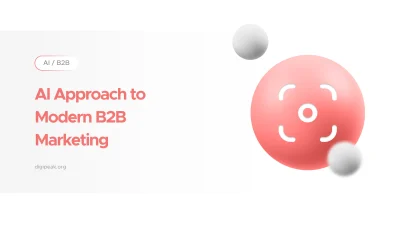
The year is 2026. The digital marketing playbook from just a couple of years ago …
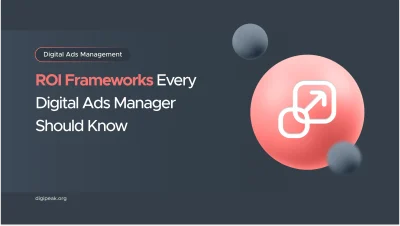
Before we explore the new frameworks, let's face the reality of our current environment. The …